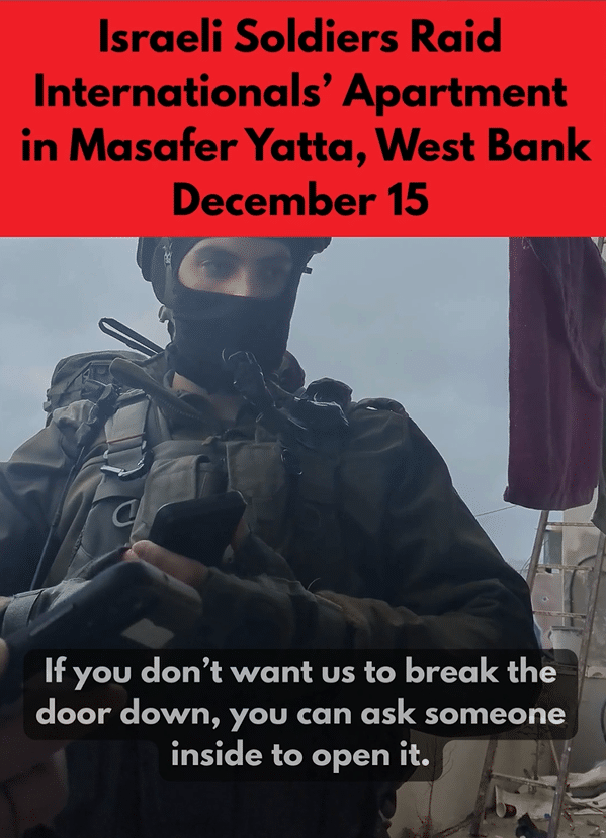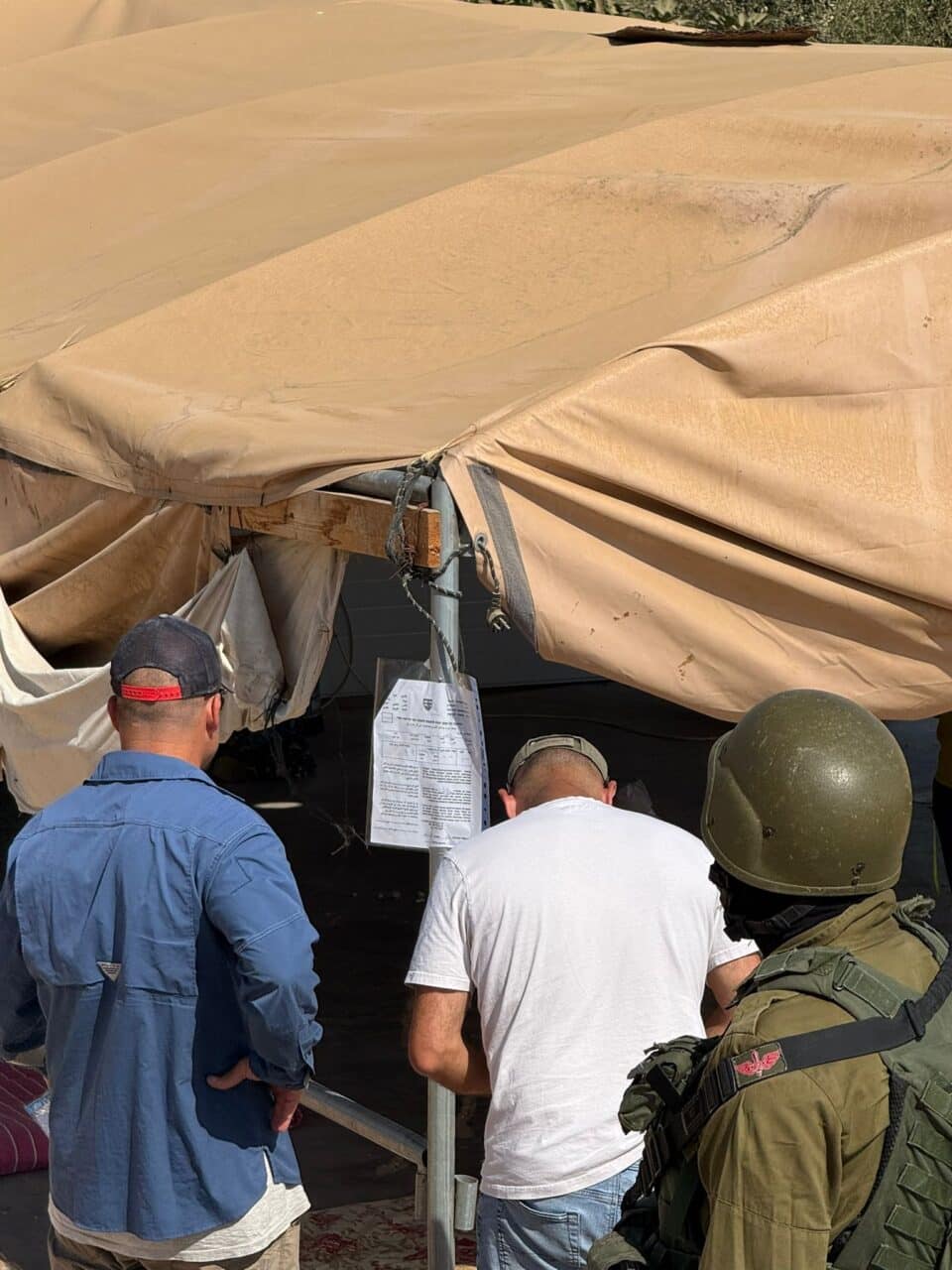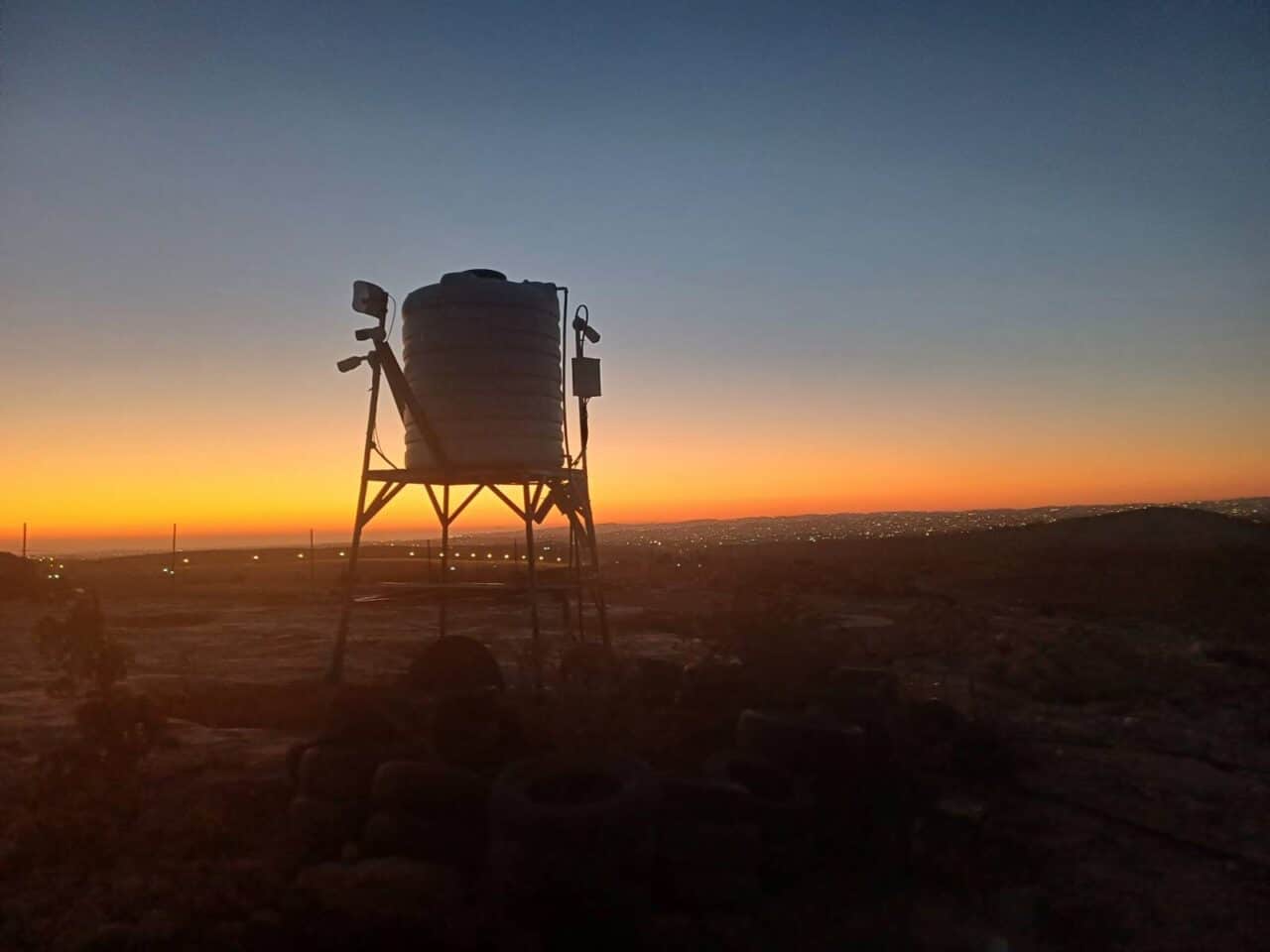Tag: Masafer Yatta
-

FOR IMMEDIATE RELEASE – A Day of Terror in Masafer Yatta: Occupation Army Brutally Arrests Elderly Palestinian Amputee and Raids Apartment of International Activists
Monday, 15 December 2025 Masafer Yatta – Yesterday morning, December 15, 2025, Israeli forces descended on Sheikh Said’s land in Rakiz, a village in Masafer Yatta. The Palestinian family had recently erected a razor wire fence to prevent settler sheep and ATVs from entering onto their land. The fence had only been there a short…
-

Urgent risk of forced displacement: 14 demolition orders in Umm al-Khair, Massafer Yatta
Still in mourning after the murder of activist, father, and beloved community figure Awdeh al-Hathaleen, the residents of Umm al-Khair, Massafer Yatta have this week been served final demolition orders for 11 homes, all belonging to members of the al-Hathaleen family. Handed out by soldiers on on Tuesday 28th October, the army at the same…
-

The War on the West Bank: The Open Ambition to Erase Palestine
As genocide and famine continues to ravage Gaza,[1] Palestinians within the Occupied West Bank also face a monumental crisis; a disturbing campaign of ethnic cleansing that has only intensified in recent years. Imagine that every waking moment is filled with worry that a masked mob will ambush your village. That each night is disturbed by…
